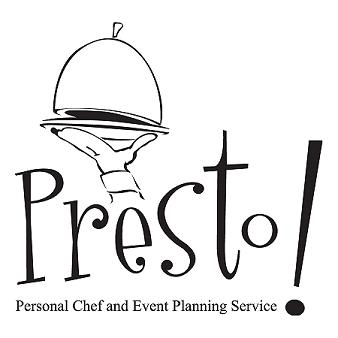Are you sensing a theme? I rarely am able to watch daytime television, but I found myself in front of the set yesterday watching some of Martha Stewart's daytime show. The topic caught my attention: Good Mood foods. I thought I would share what they had to say as it ties nicely with my post from earlier this week.
.
.
.
Many people turn to food in times of stress, but don't realize the foods they eat could actually be adding to their high stress levels. Dr. Brent Ridge, vice president of healthy living at Martha Stewart Living Omnimedia has some tips for altering your diet to help ease anxiety.
Many people turn to food in times of stress, but don't realize the foods they eat could actually be adding to their high stress levels. Dr. Brent Ridge, vice president of healthy living at Martha Stewart Living Omnimedia has some tips for altering your diet to help ease anxiety.
.
Diet Can Play a Huge Role in Causing Stress
Carbohydrate-rich foods and sweets such as doughnuts boost the release of serotonin in the body, helping the body to regulate anxiety and mood. But these foods also cause a quick rise and fall in blood-sugar levels, and when the sugar level falls, people often eat more of those foods to get another boost -- leading to the consumption of an enormous amount of calories.
.
-Trans-fatty acids found in fast food reduce circulation and raise blood pressure, keeping the body in a constant state of stress.
.
-Many people reach for caffeine when stressed, but caffeine boosts adrenaline production and only puts the body more on edge. When opting for caffeine, try green, black, or oolong tea, which give the caffeine boost but also contain amino acids such as L-theanine that help to ease tension.
.
-Alcohol can make you feel good in the moment, but it will also disturb sleep patterns, ultimately producing more stress, both physiologically and psychologically.
.
Foods to Help Soothe Stressed-Out Nerves
.
Avocados, Baked Potatoes (with Skin), Bananas, Yellow-Fin Tuna
-Helpful nutrient: vitamin B6.
-Why it helps: Stress depletes B6, which helps produce serotonin.
-Best foods for B6: Fortified whole grain cereals, chick peas, salmon, lean beef, pork tenderloin, chicken breast, white potatoes with skin, oatmeal, bananas, pistachios, lentils, tomato paste, barley, rice (wild or brown), peppers, sweet potatoes, winter squash, broccoli, broccoli rabe, carrots, brussels sprouts, peanut butter, eggs, shrimp, tofu, apricots, watermelon, avocado, strawberries, whole grain bread.
.
Clams, Fat-Free Milk, Fat-Free Yogurt, Salmon
-Helpful nutrient: vitamin B12.
-Why it helps: It helps form GABA, a calming neurotransmitter.
-Best foods for B12: shellfish, salmon, fortified whole-grain cereals, enriched or fortified soy milk, trout, tuna, lean beef, veggie burgers, cottage cheese, yogurt, milk, egg, cheese.
.
Asparagus, Chickpeas, Lentils, Oatmeal
-Helpful nutrient: folate (folic acid).
-Why it helps: It helps make dopamine, a neurotransmitter associated with pleasure.
-Best foods for folate: Fortified whole-grain cereals, lentils, black-eyed peas, soybeans, oatmeal, turnip greens, spinach, mustard greens, green peas, artichokes, okra, beets, parsnips, broccoli, broccoli rabe, sunflower seeds, wheat germ, oranges and juice, brussels sprouts, papaya, seaweed, berries, cauliflower, corn, whole-grain bread, whole-wheat pasta.
.
Almonds, Spinach, Sunflower Seeds, Tofu, Wild Rice
-Helpful nutrient: magnesium.
-Why it helps: Stress depletes magnesium, which stimulates the production of GABA and helps make dopamine.
-Best foods for magnesium: Pumpkin seeds, spinach, Swiss chard, amaranth, sunflower seeds, cashews, almonds, quinoa, tempeh, sweet potatoes, white potatoes, soybeans, millet, beans, artichoke hearts, peanuts, peanut butter, chickpeas, brown rice, whole-grain bread, sesame seed, wheat germ, flax seed.
.
Broccoli, Orange Juice, Red and Green Peppers, Strawberries
-Helpful nutrient: vitamin C
-Why it helps: It boosts your immune system and fights brain-cell damage resulting from constant exposure to cortisol (a stress hormone).
-Best foods for vitamin C: guava, bell peppers, orange juice, hot chile peppers, oranges, grapefruit juice, strawberries, pineapple, kohlrabi, papaya, lemons, broccoli, kale, brussels sprouts, kidney beans, kiwi, cantaloupe, cauliflower, red cabbage, mangos, grapefruit, white potatoes with skin, mustard greens, cherry tomatoes, sugar snap peas, snow peas, clementines, rutabagas, turnip greens, tomatoes, raspberries, blackberries, green tomatoes, cabbage, watermelon, tangerines, lemon juice, okra, lychees, summer squash, persimmons.
.
.
First Published: September 2007
First Published: September 2007




